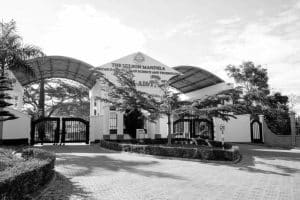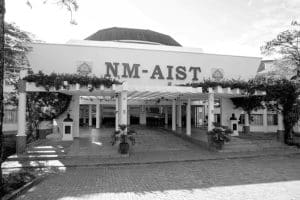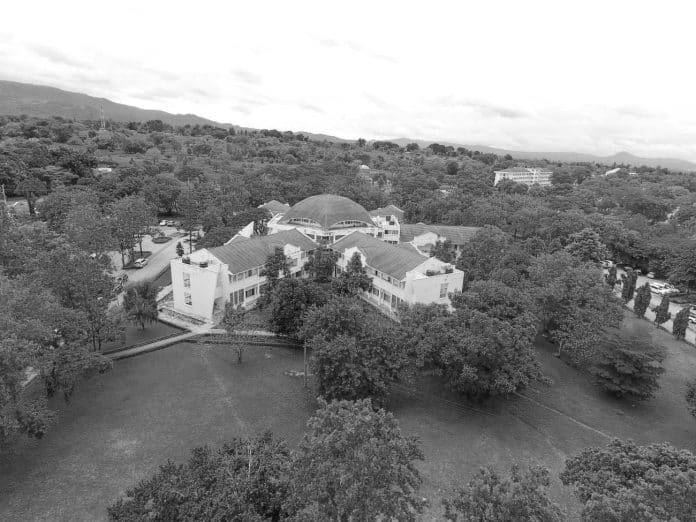Introduction to the Nelson Mandela African Institute of Science and Technology
The Nelson Mandela African Institute of Science and Technology (NM-AIST) is a leading institution of higher learning and research in Tanzania, East Africa. Established in 2011, the institute is named after the iconic South African leader, Nelson Mandela, whose legacy of social justice, equality, and scientific advancement continues to inspire the institute’s mission and vision.
Located in the picturesque city of Arusha, NM-AIST is strategically positioned at the heart of the East African Community, providing a dynamic and collaborative environment for cutting-edge research and innovation. As a premier institution in the region, NM-AIST is committed to fostering a culture of excellence, interdisciplinary collaboration, and transformative impact on the lives of people in Tanzania and beyond.
The Mission and Vision of the Institute
The mission of the Nelson Mandela African Institute of Science and Technology is to become a world-class center of excellence in science, engineering, and technology, with a focus on addressing the pressing challenges facing Africa and the global community. The institute’s vision is to be a leading hub for groundbreaking research, innovative solutions, and the development of highly skilled professionals who will drive sustainable development and social change.
At the core of NM-AIST’s mission and vision is a deep commitment to the principles of inclusivity, diversity, and social responsibility. The institute strives to create an environment that nurtures talent, encourages critical thinking, and empowers individuals from all backgrounds to contribute to the advancement of science and technology.
Research Areas and Projects at the Institute

The Nelson Mandela African Institute of Science and Technology is home to a diverse range of research areas and projects that address the pressing needs of the African continent and the global community. Some of the key research areas at the institute include:
- Sustainable Agriculture and Food Security: Researchers at NM-AIST are exploring innovative solutions to increase agricultural productivity, enhance food security, and promote sustainable farming practices.
- Water and Environmental Management: The institute’s experts are tackling challenges related to water resource management, environmental conservation, and climate change mitigation.
- Energy and Sustainable Development: NM-AIST is at the forefront of research in renewable energy, energy efficiency, and the development of sustainable energy solutions.
- Health and Biomedical Sciences: The institute’s researchers are working on advancements in areas such as infectious disease control, public health, and personalized medicine.
- Information and Communication Technologies (ICT): NM-AIST is driving research and innovation in areas like artificial intelligence, cybersecurity, and digital transformation.
- Materials Science and Engineering: The institute’s scientists are exploring the development of advanced materials and their applications in various industries.
These research areas are supported by state-of-the-art facilities, interdisciplinary collaborations, and a talented pool of researchers, faculty, and students who are dedicated to pushing the boundaries of scientific knowledge and technological progress.
Pioneering Research Initiatives at the Institute
At the Nelson Mandela African Institute of Science and Technology, you will find a thriving ecosystem of pioneering research initiatives that are making significant contributions to the advancement of science and technology. Some of the institute’s flagship research projects include:
- Developing Drought-Resistant Crops: NM-AIST researchers are working on the genetic modification of staple crops to enhance their resilience to drought, a pressing challenge in the face of climate change.
- Harnessing Renewable Energy from Geothermal Resources: The institute’s experts are exploring the untapped potential of geothermal energy in Tanzania and the East African region, with the goal of developing sustainable and cost-effective energy solutions.
- Combating Malaria through Novel Mosquito Control Strategies: NM-AIST is at the forefront of research on innovative approaches to malaria prevention, including the use of genetically modified mosquitoes and targeted insecticide applications.
- Developing Affordable and Accessible Medical Devices: Researchers at the institute are designing and prototyping low-cost medical devices that can improve healthcare access and outcomes in resource-limited settings.
- Advancing Precision Agriculture through Satellite Imagery and Drones: NM-AIST is leveraging the power of remote sensing technologies and unmanned aerial vehicles to optimize crop management, improve yields, and enhance sustainable farming practices.
These pioneering research initiatives, among many others, demonstrate the institute’s commitment to addressing the unique challenges faced by African nations and contributing to the global scientific community.
Collaborations and Partnerships with Other Institutions
The Nelson Mandela African Institute of Science and Technology is a hub of international collaboration and strategic partnerships, fostering a dynamic exchange of ideas, resources, and expertise. The institute has forged strong relationships with leading universities, research centers, and organizations around the world, including:
- The Massachusetts Institute of Technology (MIT)
- The University of Cambridge
- The University of Nairobi
- The African Academy of Sciences
- The World Bank
- The United Nations Development Programme (UNDP)
These collaborations enable NM-AIST to leverage global knowledge, access cutting-edge technologies, and engage in joint research projects that address complex, cross-border challenges. Through these partnerships, the institute is able to amplify its impact and contribute to the advancement of science and technology on a global scale.
Impact and Contributions of the Institute to Science and Technology
The Nelson Mandela African Institute of Science and Technology has been making significant contributions to the advancement of science and technology, both within Tanzania and across the African continent. Some of the notable impacts and achievements of the institute include:
- Cultivating a Highly Skilled Workforce: NM-AIST has been instrumental in producing a new generation of scientists, engineers, and technologists who are equipped with the knowledge and skills to drive innovation and sustainable development.
- Fostering Entrepreneurship and Innovation: The institute’s entrepreneurship and innovation programs have empowered students and researchers to transform their ideas into tangible solutions that address real-world problems.
- Driving Sustainable Development Goals: NM-AIST’s research and initiatives are closely aligned with the United Nations Sustainable Development Goals, contributing to the achievement of global targets in areas such as poverty reduction, clean energy, and climate action.
- Enhancing Regional Competitiveness: By strengthening the scientific and technological capabilities of Tanzania and the East African region, NM-AIST is positioning the area as a hub of innovation and a magnet for international investment and collaboration.
- Advancing Scientific Knowledge: The institute’s researchers have published groundbreaking studies, secured patents, and made significant contributions to the global scientific community, expanding the frontiers of knowledge in their respective fields.
These impacts and achievements demonstrate the institute’s unwavering commitment to transforming lives, empowering communities, and driving sustainable progress through the power of science and technology.
Facilities and Resources Available at the Institute

The Nelson Mandela African Institute of Science and Technology is home to state-of-the-art facilities and resources that support its cutting-edge research and educational programs. Some of the key facilities and resources available at the institute include:
- Cutting-Edge Laboratories: NM-AIST boasts a range of well-equipped laboratories, including those for materials science, biotechnology, renewable energy, and environmental analysis, among others.
- Advanced Research Infrastructure: The institute’s research infrastructure includes specialized equipment, high-performance computing facilities, and data centers that enable researchers to conduct sophisticated experiments and simulations.
- Extensive Library and Information Resources: NM-AIST’s library and digital repositories provide access to a vast collection of scholarly journals, books, and online resources, supporting the research and learning needs of the institute’s community.
- Collaborative Spaces and Innovation Hubs: The institute offers dedicated spaces for interdisciplinary collaboration, idea-sharing, and the incubation of innovative solutions, fostering a dynamic and creative environment.
- Vibrant Campus Life: NM-AIST’s campus offers a range of amenities, including student housing, recreational facilities, and community engagement opportunities, ensuring a well-rounded experience for the institute’s diverse student population.
These state-of-the-art facilities and resources, combined with the institute’s talented faculty and dedicated staff, create an enabling environment for groundbreaking research, innovative teaching, and transformative learning experiences.
Admission and Scholarship Opportunities
The Nelson Mandela African Institute of Science and Technology welcomes applications from talented individuals who are passionate about pursuing their academic and research aspirations. The institute offers a range of undergraduate, postgraduate, and doctoral programs across its various schools and research centers.
To ensure accessibility and inclusivity, NM-AIST provides a variety of scholarship opportunities to support students from diverse backgrounds. These scholarships, funded by the institute, the Tanzanian government, and international partners, cover tuition fees, living expenses, and research funding, making it possible for deserving students to pursue their studies at the institute.
The admission process at NM-AIST is highly competitive, with the institute seeking individuals who demonstrate academic excellence, leadership potential, and a commitment to using science and technology to address the challenges facing the African continent. Prospective students are encouraged to visit the institute’s website and reach out to the admissions office for detailed information on the application requirements and deadlines.
Success Stories and Achievements of the Institute
The Nelson Mandela African Institute of Science and Technology takes great pride in the success stories and achievements of its students, faculty, and alumni. Over the years, the institute has produced numerous inspiring individuals who have gone on to make significant contributions to their respective fields and communities.
One such success story is that of Dr. Neema Mosha, a graduate of NM-AIST’s Doctoral Program in Materials Science and Engineering. Dr. Mosha’s groundbreaking research on the development of affordable and sustainable building materials has earned her international recognition, including the prestigious L’Oréal-UNESCO For Women in Science Award.
Another example is the work of the institute’s student-led team, who participated in the prestigious international competition, the Hult Prize. The team’s innovative solution to address the challenge of affordable and sustainable housing in urban slums earned them a spot in the global finals, showcasing the institute’s commitment to nurturing entrepreneurial and problem-solving skills.
These success stories, along with the numerous awards, patents, and publications generated by the NM-AIST community, demonstrate the institute’s unwavering dedication to excellence and its ability to transform the lives of individuals and communities through the power of science and technology.
Conclusion: The Future of the Nelson Mandela African Institute of Science and Technology
As the Nelson Mandela African Institute of Science and Technology continues to grow and evolve, it remains steadfast in its commitment to being a beacon of excellence, innovation, and social impact in Tanzania and the broader African region. With its talented faculty, dedicated staff, and ambitious student body, the institute is poised to play a pivotal role in shaping the future of science, technology, and sustainable development.
In the years ahead, NM-AIST will continue to push the boundaries of research and innovation, tackling the most pressing challenges facing Africa and the world. The institute will further strengthen its international collaborations, expand its educational offerings, and invest in cutting-edge facilities and resources to ensure that it remains at the forefront of scientific and technological advancement.
Most importantly, the Nelson Mandela African Institute of Science and Technology will remain true to its core values of inclusivity, diversity, and social responsibility, empowering individuals from all backgrounds to contribute to the betterment of their communities and the world at large. As it continues to pioneer groundbreaking research and nurture the next generation of leaders, the institute will undoubtedly cement its place as a true catalyst for transformative change.
For more articles related to Education in Tanzania, click here!





























